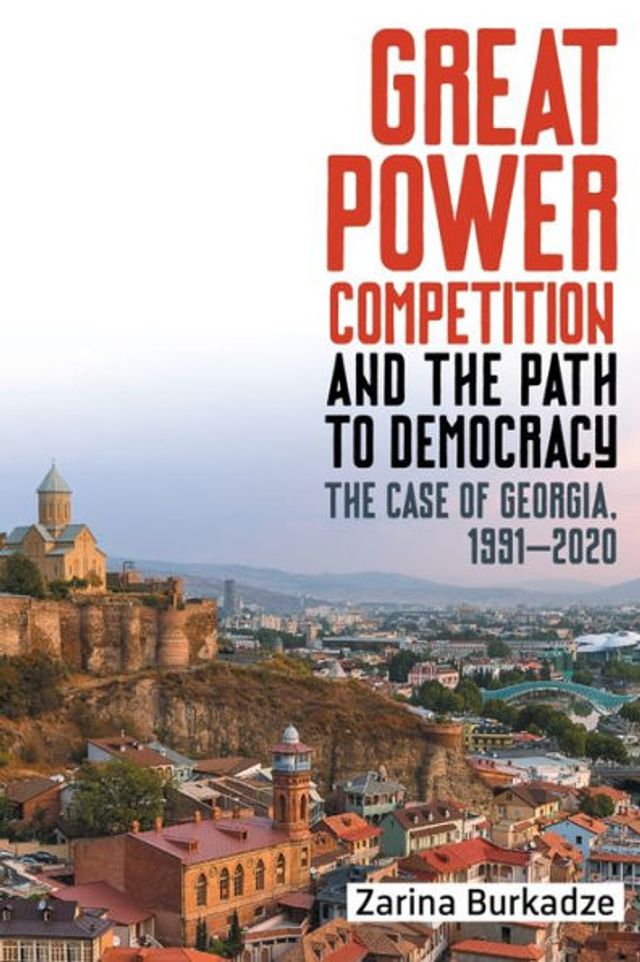Home
Great Power Competition and The Path to Democracy: Case of Georgia, 1991-2020
Loading Inventory...
Barnes and Noble
Great Power Competition and The Path to Democracy: Case of Georgia, 1991-2020
Current price: $110.00


Barnes and Noble
Great Power Competition and The Path to Democracy: Case of Georgia, 1991-2020
Current price: $110.00
Loading Inventory...
Size: Hardcover
*Product Information may vary - to confirm product availability, pricing, and additional information please contact Barnes and Noble
A close examination of the competing influences of the West and Russia over the fate of democracy in Georgia and other former Soviet bloc nations
Following the collapse of the Soviet Union, newly formed transitional regimes took up the challenging task of democratization, a task that was complicated by competition between great world powers over the future of such regimes. This book explores the effects and implications of competition between Russia and Western nations, with specific reference to democratization in the case of Georgia. In doing so, it challenges the conventional wisdom that competition between promoters of democracy and autocracy reduces the effectiveness of efforts toward democracy.
Using the compelling example of Georgia, author Zarina Burkadze argues that great power competition may distribute political power in a way that causes a democratic regime to emerge, supporting her argument with evidence from an impressive array of archival sources as well as from sixty-six interviews with state officials, opposition leaders, foreign diplomats, media and nongovernmental representatives, and other experts. While the case study of Georgia is the central concern of the narrative, the book's final chapter provides an important cross-case comparison of democratization efforts in Armenia, Azerbaijan, Moldova, and Ukraine.
Following the collapse of the Soviet Union, newly formed transitional regimes took up the challenging task of democratization, a task that was complicated by competition between great world powers over the future of such regimes. This book explores the effects and implications of competition between Russia and Western nations, with specific reference to democratization in the case of Georgia. In doing so, it challenges the conventional wisdom that competition between promoters of democracy and autocracy reduces the effectiveness of efforts toward democracy.
Using the compelling example of Georgia, author Zarina Burkadze argues that great power competition may distribute political power in a way that causes a democratic regime to emerge, supporting her argument with evidence from an impressive array of archival sources as well as from sixty-six interviews with state officials, opposition leaders, foreign diplomats, media and nongovernmental representatives, and other experts. While the case study of Georgia is the central concern of the narrative, the book's final chapter provides an important cross-case comparison of democratization efforts in Armenia, Azerbaijan, Moldova, and Ukraine.

















